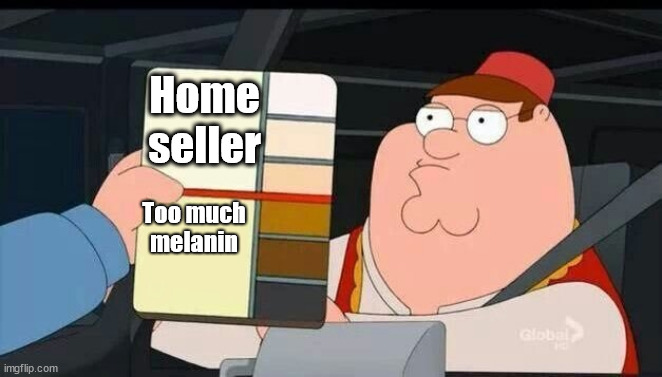Whether it's Uber, Lyft, Airbnb, or now Redfin, the ability to use algorithms, or to allow your vendors to promulgate their bigotry while you wash your hands, is a big part of many consumer facing business:
To understand how inequities in real estate persist in the U.S., consider two homes in Chicago. The first is a brick bungalow with five bedrooms and 2 1/2 bathrooms on the city’s predominantly Black South Side. The home has more than 2,000 square feet and sits on a pretty, tree-lined street, a short walk from a Nigerian restaurant. The second property is an 800-square foot, two-bedroom condominium unit in Glencoe, a mostly White suburb.
The South Side house is worth $187,000, about $20,000 more than the Glencoe condo, according to a recent visit to the website of Redfin Corp., the real estate technology company. Based in Seattle, Redfin provides home listings and valuation estimates to buyers and sellers. The company also operates one of the country’s largest real estate brokerages—but it doesn’t provide its services to just anyone. On its page describing the more expensive house in an overwhelmingly Black part of the city, Redfin’s site noted that “customer demand is through the roof right now,” so it couldn’t provide one of its real estate agents to help broker a sale. It offered a referral to another company instead. For the less expensive apartment in the overwhelmingly White suburb, Redfin promised a lot more. “We’ll handcraft your analysis,” the site said, offering a call from an agent and comprehensive market data within two days.
The striking contrast in Redfin’s treatment of these two homes—and similar disparities in the level of service the company provides in majority-White and non-White neighborhoods—can be found in cities across the country. It is, Redfin’s detractors say, a sort of digital redlining that harkens back to the days when loan officers shaded no-go areas red on maps. The critics include fair housing groups, which are in talks with the company to settle a federal lawsuit they filed that could force changes in how Redfin manages its business, and at least some of its own employees, who have pushed for more service in minority neighborhoods.
………
Sellers whose homes are worth more than whatever the minimum happens to be when they sign up for Redfin’s service get professional photos, 3D walkthroughs, data analysis, and added visibility on its site—all while paying less in commissions than they would with a typical real estate brokerage. Sellers of homes that are below the company’s minimum threshold get a referral to a non-Redfin agent, which the company calls a “partner agent,” or no service at all. As a result, fair housing groups contend, these sellers may have to pay a bigger commission for an inferior listing, and may ultimately accept a lower price.
 Their claim is pretty simple, that they need to generate a certain level of commission before it makes business sense to provide services, but in the specific case listed above, they refused service on the bigger commission.
Their claim is pretty simple, that they need to generate a certain level of commission before it makes business sense to provide services, but in the specific case listed above, they refused service on the bigger commission.
It's ironic because Redfin CEO Glenn Kelman has been outspoken about what he sees as the embedded racism in the existing real estate industry.
It looks like his district offices are being run by the guys he criticizes, and it's on him.


0 comments :
Post a Comment